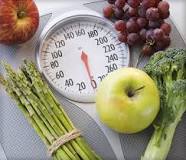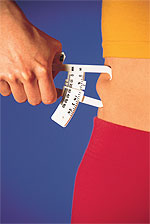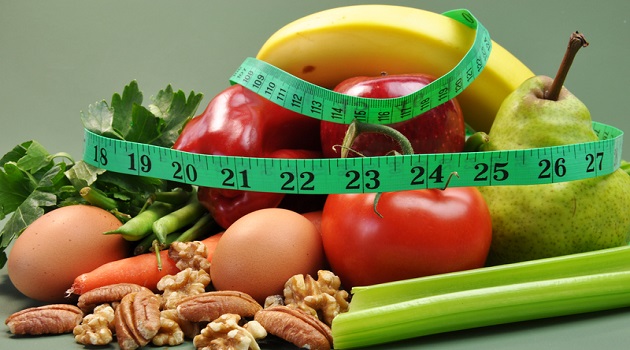It IS What you Eat
 When it comes to diets, they can be tricky beasts to tame, especially if you want to lose weight fast. Though you may be getting your daily share of fruits and vegetables, certain eating habits could be hurting your diet efforts, as well as seemingly healthy foods that could have more calories than you think.
When it comes to diets, they can be tricky beasts to tame, especially if you want to lose weight fast. Though you may be getting your daily share of fruits and vegetables, certain eating habits could be hurting your diet efforts, as well as seemingly healthy foods that could have more calories than you think.
According to a study published in the New England Journal of Medicine, the average adult gains one pound each year, gathered from data collected over 20 years from around 120,000 U.S. men and women. Details of the study linked how simply one daily serving of French fries could add-on a 3.35 pound gain to one’s weight. By contrast, adding yogurt to a diet instead linked to a 0.82 pound loss. On average, participants gained 16 pounds during the timeframe that the study was taken place (Everydayhealth. com 2011).
When choosing between a salty snack or a healthier alternative, such small tweaks to your diet can have significant effects. Dr. Dariush Mozaffarian, M.D., the study’s lead author, states how, “This suggests that the path to eating fewer calories is not simply to count calories, but to focus on consuming a more healthy diet in general” (Everydayhealth.com 2011).
Are you sneaking in some extra dessert outside of your diet regimen? Or adding more cheese than necessary to your salad? Or maybe your morning drink is too high on the calorie intake. Such decisions could keep you from achieving that preferred waistline. However, with a bit of food education and making small changes to your eating routine, you can get back on track for better, more successful weight management.
First, It’s All Mental
Many dieters who go intense in their efforts can get easily discouraged later on if  things don’t go as planned. When weight-loss becomes an obsession, it can lead to heightened cravings, or even a defeatist mentality if things get too tough. That’s when it’s a signal that you may need to slow things down a bit. The trick to get dieting to be more effective is to have it as a normal part of your everyday life. Implementing the right food decisions to be part of your overall lifestyle instead of a temporary period can keep away those hidden calories from adding up to your weight (Zelman 2008).
things don’t go as planned. When weight-loss becomes an obsession, it can lead to heightened cravings, or even a defeatist mentality if things get too tough. That’s when it’s a signal that you may need to slow things down a bit. The trick to get dieting to be more effective is to have it as a normal part of your everyday life. Implementing the right food decisions to be part of your overall lifestyle instead of a temporary period can keep away those hidden calories from adding up to your weight (Zelman 2008).
Pace Yourself
If you’re in a rush for that weight loss, but are hemmed in by tight and busy schedules, you’ve probably rushed through your lunch break once or twice. A problem with this method is that this can create the habit of eating rapidly through all your meals. Without leisure time to enjoy your food, you can consume more calories than you’re supposed to take. Your brain sends out signals of fullness as you eat, triggering you to eat less. If you eat fast however, those signals might not catch up quick enough. So give your body—and your brain—time to adjust. Savor the taste, and you’ll certainly enjoy your meals better that way (Zelman).
Don’t Skip Your Meals
 Speaking of eating less, one common belief is that the less food we eat, the less weight we would gain. However, it’s not always that simple. Research on those who skip breakfast showed they weighed more than those who eat said breakfast. That’s because those who eat less than three meals a day wind up consuming even more calories when they do eat. Be sure to have a breakfast that has protein and fiber (an egg, whole wheat toast, etc.) which will help keep you full until lunch (Zelman 2008).
Speaking of eating less, one common belief is that the less food we eat, the less weight we would gain. However, it’s not always that simple. Research on those who skip breakfast showed they weighed more than those who eat said breakfast. That’s because those who eat less than three meals a day wind up consuming even more calories when they do eat. Be sure to have a breakfast that has protein and fiber (an egg, whole wheat toast, etc.) which will help keep you full until lunch (Zelman 2008).
Be Wary of Liquid Calories
When your daily be verages consists of alcohol, smoothies, or sodas, you can be unwittingly gaining more weight. A study on Americans detailed how most citizens can consume around 21% of their calorie intake through beverages alone. The issue here is that while beverages can satiate thirst, they don’t always affect hunger. Thus, you could be getting more than you bargained for. Exchange the latte for a cool glass of water instead, the coffee with cream for some skim milk, or the smoothie for 100% fruit juice. When it comes to alcohol, be sure to drink in moderation, or cut it out of your diet altogether (Zelman 2008).
verages consists of alcohol, smoothies, or sodas, you can be unwittingly gaining more weight. A study on Americans detailed how most citizens can consume around 21% of their calorie intake through beverages alone. The issue here is that while beverages can satiate thirst, they don’t always affect hunger. Thus, you could be getting more than you bargained for. Exchange the latte for a cool glass of water instead, the coffee with cream for some skim milk, or the smoothie for 100% fruit juice. When it comes to alcohol, be sure to drink in moderation, or cut it out of your diet altogether (Zelman 2008).
Taking Too Big a Bite
We’ve all been taught not to waste food. But when we’re eating a large serving, you  may sometimes be forcing yourself to eat every last bite. This here is another way that calories can slip through. Try to leave some of the big portions behind on that plate, and save it for another day. Or, if you can’t stand not having a clean plate, use smaller plates and bowls for your meals. You’ll consume less calories, but you won’t go hungry afterwards, and you won’t test the limits of your fullness either (Zelman 2008).
may sometimes be forcing yourself to eat every last bite. This here is another way that calories can slip through. Try to leave some of the big portions behind on that plate, and save it for another day. Or, if you can’t stand not having a clean plate, use smaller plates and bowls for your meals. You’ll consume less calories, but you won’t go hungry afterwards, and you won’t test the limits of your fullness either (Zelman 2008).
The same goes for adding in additional things to your food, such as highfat toppings and condiments. If a salad is laden with rich dressing, croutons, and bacon, you could be missing the healthy purpose of the salad. Choose healthier alternatives if you must, like vinegar oil, roasted vegetables, dates, or raisins. For cooked food, if you like having your burger with mayo, try mustard instead.
Keep Things Balanced
 Most of all, it’s important to have moderation in your meals. While something you eat may not pack on the gut, it might not help you lose it either. That’s why it’s vital to practice appropriate eating habits to keep your figure. Fruits, while containing fiber, also has high fructose sugar, and should be eaten in conjunction with vegetables. (Rousell). The same could be said for most of the food groups. From protein, to salt, to carbohydrates—your diet needs to be made up of variety. Together with both daily exercising and a good night’s sleep, you can keep your diet on track and make it an intrinsic part of your life.
Most of all, it’s important to have moderation in your meals. While something you eat may not pack on the gut, it might not help you lose it either. That’s why it’s vital to practice appropriate eating habits to keep your figure. Fruits, while containing fiber, also has high fructose sugar, and should be eaten in conjunction with vegetables. (Rousell). The same could be said for most of the food groups. From protein, to salt, to carbohydrates—your diet needs to be made up of variety. Together with both daily exercising and a good night’s sleep, you can keep your diet on track and make it an intrinsic part of your life.
WHAT YOU NEED TO KNOW: THE SEVEN PILLARS OF SUCCESSFUL WEIGHT LOSS |
|
WHERE’S THE FAT? |
| The location of body fat stores is directly related to disease risk factors. People with excess levels of abdominal fat are at markedly increased risk of chronic illnesses such as cardiovascular disease and type 2 diabetes—both of which are closely related to the metabolic syndrome.22,23 Direct entry of fats from abdominal stores into the liver may trigger increased insulin resistance, accounting for the relationship with type 2 diabetes.24
Recent studies have also shown that the potent endocrine function of abdominal body fat may explain the relationship between abdominal fat and cognitive decline, such as that seen in Alzheimer’s and other neurodegenerative diseases.25 Abdominal fat is not just a problem in adults—new studies have established a relationship between fat distribution in early childhood and adolescence and serious chronic disease in early to mid-adulthood.26,27Responsible doctors now include abdominal circumference measurements at routine visits as a means of identifying these risk factors.28 Even within the abdomen, the location of fat stores matters. People with excessive amounts of fat in their livers (fatty liver disease) are at even higher risk for all of these chronic conditions, compared with those who have lower levels of liver fat.29 Indeed, damage to liver cells, as measured by increased levels of liver-based enzymes in the bloodstream, is closely associated with decreased insulin sensitivity and is a risk factor for development of type 2 diabetes.30,31 |
FAT AND CARDIOVASCULAR DISEASE |
| High body fat is of course strongly associated with cardiovascular disease—but the relationship is more complicated and subtle than we used to think. Atherosclerosis is clearly the result of the cycle of lipid oxidation, inflammation, and vascular injury, as mentioned above, but fat tissue causes other risks that are independent of plasma lipid levels. Acting as an endocrine organ, fat tissue can increase the flow of hormones (known as adipokines) involved in blood pressure control,24 potentially accounting directly for some of the hypertension we used to attribute simply to “stiff blood vessels” and “extra force needed to pump blood.”56
Again, it seems to be specifically the accumulations of abdominal fat that produce these remarkable and deadly effects.57 And again, it is fortunate that adequate reduction in body fat content through lifestyle changes, diet, and supplementation has been associated with decreased risk for cardiovascular catastrophes, such as heart attacks and strokes.58-61 |
Sources: Journal of Longevity, http://www.gardavita.com/journal-of-longevity and Life Extension Magazine
For more onformation on weight loss, go to the number 1 in research and “The BEST name in Nutrition” LifeExtension.com


Great article that reveals LONG TERM healthy weight management. You describe this as a PROCESS creating a lifestyle rather than piecemeal puzzle. Long term weight loss is NOT about addressing merely the “big components” (exercise and nutrition.) It’s about INTEGRATING the physical, mental and emotional into a cohesive plan that creates BALANCE in one’s life.
LikeLiked by 1 person
Thanks Dr. I appreciate your comments. Wish more people were reading my posts and reading your articles, but it is a work in progress. Thanks, again.
LikeLiked by 1 person